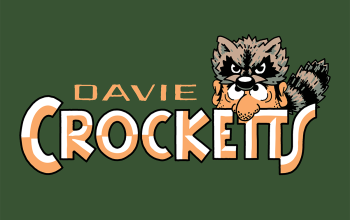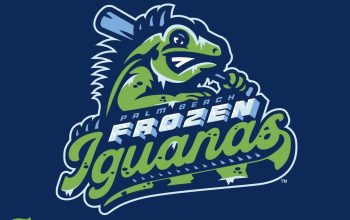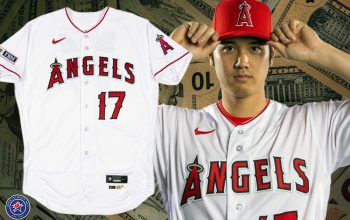Here are some important facts about the small carnivorous animal known as the fisher cat: 1. It is not a cat. 2. It does not eat fish.

Fisher cats are members of the weasel family, and their name derives from a linguistic quirk of European settlers in North America, who thought it looked like a European polecat. According to this online dictionary, the name fisher cat comes from “fiche” or “fichet”—French terms for a polecat pelt—and the middle Dutch word for nasty, “visse.”
“There are tons of them all over New Hampshire,” said Rick Brenner, president and general manager of minor league baseball’s New Hampshire Fisher Cats. “They’re a pretty mean, aggressive animal, to be honest with you.”
Much of the fisher cats’ range is in the forested lands of Canada, so it seems appropriate the New Hampshire Fisher Cats, who play in the Double-A Eastern League, are an affiliate of Major League Baseball’s only Canadian team, the Toronto Blue Jays. (Until we get the Expos back. Am I right, Montreal?!)

As a sports franchise that plays in New England but is an affiliate of a divisional rival of the beloved Red Sox, the Fisher Cats don’t expect their fans’ team loyalty to extend so far beyond the city limits of Manchester, New Hampshire.
“It’s a great, rabid sports market to be in,” Brenner said. “People love their teams, they love their sports, so it’s a great atmosphere to be in and be a part of. We work hard to make sure the Fisher Cats are our community’s minor league team, and who they choose to be their Major League team is certainly something that’s their choice.”
The Eastern League’s other New England team is the Portland Sea Dogs, a Red Sox affiliate, so you can bet that when the Fisher Cats and Sea Dogs get together, their fans fight like two different kinds of animals who do not typically get along that well. (Again, I can’t emphasize this strongly enough: Fisher cats are not actually cats. And as we pointed out back in May of 2014, sea dogs are not actually dogs.)
The Fisher Cats’ inaugural logo, designed by Studio Simon, featured a menacing version of the animal gripping a bat and a ball, with New Hampshire’s evergreen forests in the background.
A change in team leadership took the team in a new direction in 2008, this one designed by Rickabaugh Graphics. “We were just kind of looking for something a little friendlier, a little bit more able to relate to the kids and the families that come in the park,” Brenner said. “Our goal was really to freshen up the look and take it a little bit down the friendlier road than the aggressive one. We were looking to change the color scheme up, brighten it up a little bit.”
In 2011, the team underwent another identity shift, this time from a conceptual color standpoint. “We felt that green was important to be a part of New Hampshire,” Brenner said. “Then we got to a point where we thought, you know, so much of New England is patriotic, and the red, white, and blue would be a great fit for our marks. We took a look at it and decided to go that direction.”
Alternate logos include the animal’s tail wrapped around the letters NH and a clawed paw gripping a baseball.
Speaking of patriotic, the Fisher Cats would not have actually been the Fisher Cats if things had gone to the original team management’s plans. When the team was first announced in 2003, they were introduced as the New Hampshire Primaries, named for the state’s role in hosting the first ballots cast in the early stages of the USA’s never-ending presidential election process. Local fans hated the name—probably because they were in the midst of an election cycle at the time, and it’s a soul-crushing, horrible process—and the team turned to a fan vote to decide on another name.
 That said, the Fisher Cats have not abandoned the Primaries name altogether, occasionally using it as an alternate identity. The team primarily (get it?) uses a patriotic Uncle Sam instead of the original concept for the primary logo (GET IT?!), which featured a Republican elephant and Democratic donkey eying each other suspiciously, seemingly about to bash each other with baseball bats.
That said, the Fisher Cats have not abandoned the Primaries name altogether, occasionally using it as an alternate identity. The team primarily (get it?) uses a patriotic Uncle Sam instead of the original concept for the primary logo (GET IT?!), which featured a Republican elephant and Democratic donkey eying each other suspiciously, seemingly about to bash each other with baseball bats.
“It’s an undeniable part of the team’s history, and it’s an undeniable part of the state of New Hampshire, so it just made sense to continue to use it and have it be part of some of the things we do here from time to time,” Brenner said. “I think it’s always important to hold on to your history and celebrate it and bring it out and keep it alive and celebrate the roots of your franchise.”
Instead of elephants and donkeys, though, baseball fans opted for a different nasty animal to represent their team. They could have been named for politicians and instead they went with Fisher Cats. What this means in the end, of course, is that they simply traded one kind of weasel for another.


















